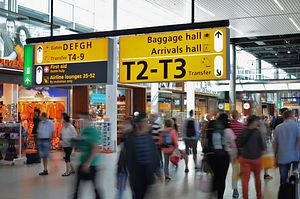Last week, U.S. President Donald Trump passed an incredibly controversial executive order that banned citizens of certain Muslim-majority nations from temporarily traveling to the United States. The order has not only sparked protests across the United States, but has also provoked global outrage, which by and large characterizes President’s Trump’s decision as racist and Islamophobic.
While the presidential order restricts the entry of citizens from seven states to the United States, it is expected that newly implemented so-called extreme vetting measures may also extend to a number of other Muslim countries where insurgent and terror groups remain present or have affected American interests, directly or indirectly.
Pakistan’s name may also surface on this travel ban list, in case the Trump administration further decides to expand it. The White House Chief of Staff Reince Priebus during a recently given interview said that “You can point to other countries that have similar problems, like Pakistan and others – perhaps we need to take it further.”
It would be an easy task for the Trump administration to justify Pakistan’s inclusion on the list of countries that pose or have remained a threat to U.S. security interests. Trump’s executive order banning people from Muslim countries looks for validation in the September 9/11 terrorist attacks, which killed about 3,000 people. Osama bin Laden, the leader of al-Qaeda who took responsibility for the attacks, lived in Pakistan for a long time and was killed in the country by U.S. forces in 2011.
Moreover, al-Qaeda has attracted U.S. drone strikes in Pakistan’s territory. Additionally, since the 9/11 attacks, various other militant groups have used Pakistan’s lawless tribal regions to launch attacks in Afghanistan, where the U.S. is engaged in the longest war in its history. In 2010, the Pakistani Taliban carried out a suicide attack on a U.S. consulate in Peshawar. In the same year, Faisal Shahzad, a Pakistani-American with links to militants in Pakistan, attempted to detonate an explosive-filled car in New York City.
It’s likely that any future sanctions on Pakistan may also comprise of a similar travel ban that Trump has placed on an initial list of Muslim majority countries. As of now, it’s clear that the ban doesn’t appear to be a result of well thought-out strategy to safeguard the U.S. from future terrorist attacks; rather, it seems like a hasty and desperate attempt on Trump’s part to follow through on his campaign promise to ban Muslims from entering the U.S.
However, on the other hand, one can argue that the global uproar in the wake of Trump’s travel ban may have saved Pakistan from being subjected to similar travel restrictions. The rationale is quite simple: while Washington’s future economic or military sanctions on Pakistan due to its noncooperation in Afghanistan and elsewhere may be regarded as a continuation of mere traditional diplomacy, any travel ban on Pakistan would only offer an additional strengthening of an already established narrative of a “Muslim ban.”
In a Twitter message, Trump said that “Christians in the Middle-East have been executed in large numbers. We cannot allow this horror to continue.” The newly elected president continues to ignore that terrorism in the Middle East has destroyed millions of Muslim lives as well. In fact, Trump’s statement points towards the thinking of a “fundamentalist Christian crusader,” drawing battle lines between freedom and oppression, or good and evil.
So while the U.S. has broad array of interests in the countries already facing visa restrictions, a Trump administration ban on Pakistan would create a new challenge for Washington’s security interests in the South Asian region. The U.S cannot secure peace in Afghanistan until it wins Islamabad’s support.
Traditionally, even in its darkest moments of isolation, Pakistan has never compromised on its strategic interests and it’s unlikely that the country will do now. A travel ban on Pakistanis would only push Islamabad further deep into Beijing’s sphere of influence. Unlike the 1990s, when Pakistan was largely dependent on Washington for economic and military assistance, Islamabad’s deepening economic ties with Beijing put it in a more independent position where it can live with any U.S. sanctions or bans.

































